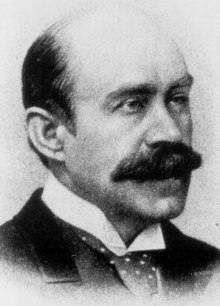

Queer Places:
The King's School, 25 The Precincts, Canterbury CT1 2ES
University of Oxford, Oxford, Oxfordshire OX1 3PA
12 Earls Terrace, Kensington, London W8 6LP, Regno Unito
 Walter Horatio Pater (4 August 1839 – 30 July 1894) was an English
essayist, literary and art critic, and fiction writer, regarded as one of the
great stylists. His works on Renaissance subjects were popular but
controversial, reflecting his lost belief in Christianity. Winckelmann (1867), Marius the Epicurean (1885) and The Age of Athletic Prizemen (1894) are cited as examples in Sexual Heretics: Male Homosexuality in
English Literature from 1850-1900, by Brian Reade.
Walter Horatio Pater (4 August 1839 – 30 July 1894) was an English
essayist, literary and art critic, and fiction writer, regarded as one of the
great stylists. His works on Renaissance subjects were popular but
controversial, reflecting his lost belief in Christianity. Winckelmann (1867), Marius the Epicurean (1885) and The Age of Athletic Prizemen (1894) are cited as examples in Sexual Heretics: Male Homosexuality in
English Literature from 1850-1900, by Brian Reade.
In 1874 Pater was turned down at the last moment by his erstwhile mentor Benjamin Jowett, Master of Balliol, for a previously-promised proctorship. In the 1980s, letters emerged documenting a "romance"[14] with a nineteen-year-old Balliol undergraduate, William Money Hardinge, who had attracted unfavorable attention as a result of his outspoken homosexuality and blasphemous verse, and who later became a novelist.[14] Many of Pater's works focus on male beauty, friendship and love, either in a Platonic way or, obliquely, in a more physical way.[15] Another undergraduate, W. H. Mallock, had passed the Pater-Hardinge letters to Jowett,[16] who summoned Pater:
"Pater's whole nature changed under the strain" (wrote A. C. Benson in his diary) "after the dreadful interview with Jowett. He became old, crushed, despairing – and this dreadful weight lasted for years; it was years before he realised that Jowett would not use them."[17]
In 1876 Mallock parodied Pater's message in a satirical novel The New Republic, depicting Pater as a typically effete English aesthete. The satire appeared during the competition for the Oxford Professorship of Poetry and played a role in convincing Pater to remove himself from consideration. A few months later Pater published what may have been a subtle riposte: 'A Study of Dionysus' the outsider-god, persecuted for his new religion of ecstasy, who vanquishes the forces of reaction (The Fortnightly Review, Dec. 1876).[14]
My published books: